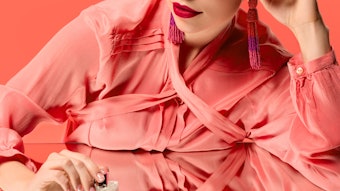Kline & Company’s recently published “Global Personal Care Ingredients Database,” featuring the dynamic performance of the personal care ingredients market in 2012, found that among several new ingredients such as conditioning polymers, antimicrobials and emulsifiers all witnessing significant growth over the last five years, the more traditional surfactants were able to maintain the primacy as the largest product category.
The ubiquitous specialty surfactants continue to contribute to the highest volumes of the global personal care ingredients market consumption rate. Kline & Company clasps the combined surfactants consumption across the U.S., EU 27, India, Japan, China, and Southeast Asia at 507 million pounds in 2012. The compound annual growth rate (CAGR) of 2.6% is regionally forecast to the year 2017, and the projected growth will be fueled by trends and changes on both global and regional levels.
In Europe, growth continues to be driven largely by the global natural trend. A biodegradable surfactant, alkyl polyglucoside finds fertile ground in the growing number of shampoos and cleansing products containing, environmentally friendly ingredients.
As a global phenomenon, the natural trend drives mature and emerging markets alike. For example, organic alkyl polyglucoside and lauryl glucosides surfactants are gaining momentum in India. Kline & Company also forecasts a 10% CAGR through 2017 for alkyl polyglucoside consumption and an 8% CAGR for lauryl glucosides in this region. (Read more about this in Kline & Company’s article Two Faced—Consumers Seeking Greener Personal Care Ingredients are Generally Not Shunning Less Environmentally Friendly Products.)
While in line with the global trends, India preserves its own specificities. Many Indian consumers seek cleansing products that give a “white glove on the hands” appearance. An increasing number of manufacturers are adding high foamers, such as alkanolamides, into their personal care products to adapt to the consumer demand.
Switching to the quickly growing ingredients, conditioning polymers are expected to experience the most dynamic growth among all the eight product categories covered by research. They are estimated to post approximately 5% CAGR over the next five years.
The strongest growth for conditioning polymers is expected in India, posting double-digit CAGR over the forecast period. Furthermore, Southeast Asia is projected to display similarly high growth rates, while Europe, the U.S., Japan and China will grow more modestly.
It is projected that the personal care ingredient industry will see increased adoption of more sophisticated body washes due to the rise in disposable incomes in India and the incorporation of polymers. Another factor that could fuel growth of Indian consumption of conditioning polymers is the introduction of cost-effective cationic guar products (e.g.: guar hydroxypropyltrimonium chloride) as an alternative to the very expensive PQ-10, previously unavailable to the local manufacturers.










